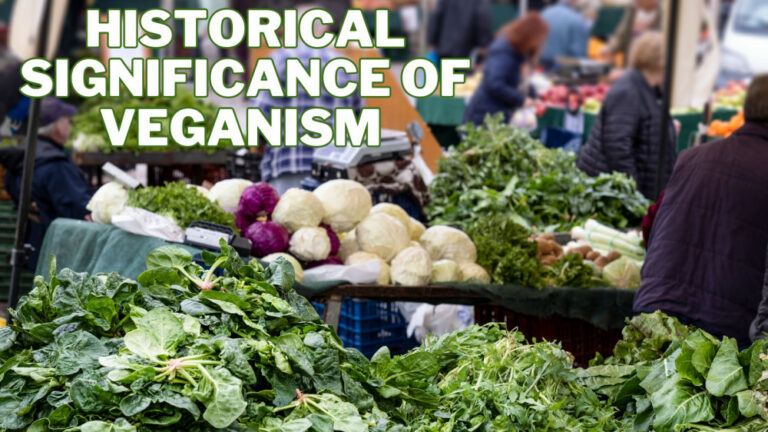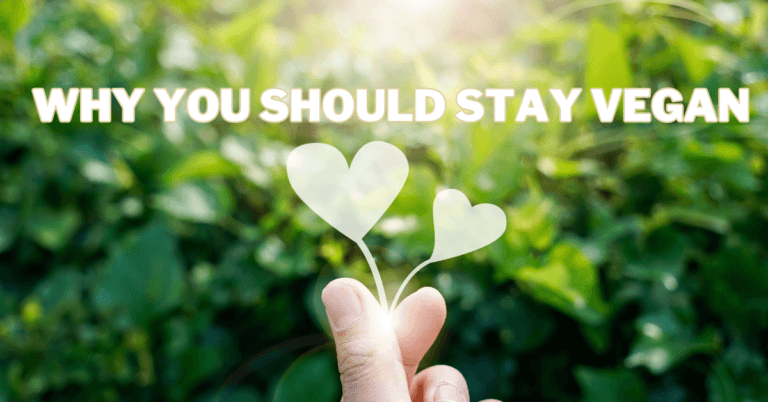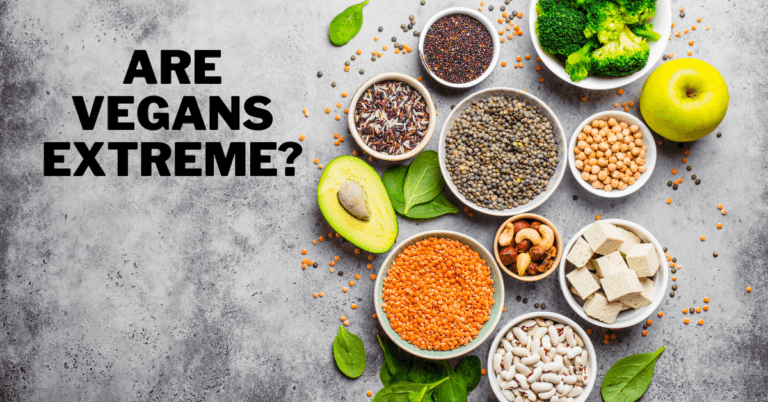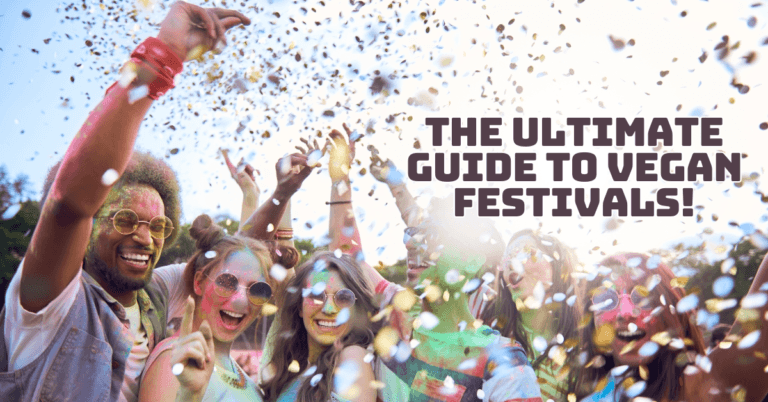Why Some People Don’t Like Vegans
Why Some People Don’t Like Vegans
In a world where food preferences are more varied than ever, choosing a vegan lifestyle elicits various responses, from admiration to mistrust.
“Why Some People Don’t Like Vegans” delves into the complex landscape of opinions and attitudes that surround veganism.
While some embrace the plant-based journey for ethical, environmental, or health reasons, others harbour reservations. This article will explore the reasons behind the resistance and shed light on the dynamics that lead to negative perceptions about vegans.
From social contexts to misconceptions, the exploration aims to foster understanding, encouraging open dialogue about diverse lifestyles and their shaping choices.
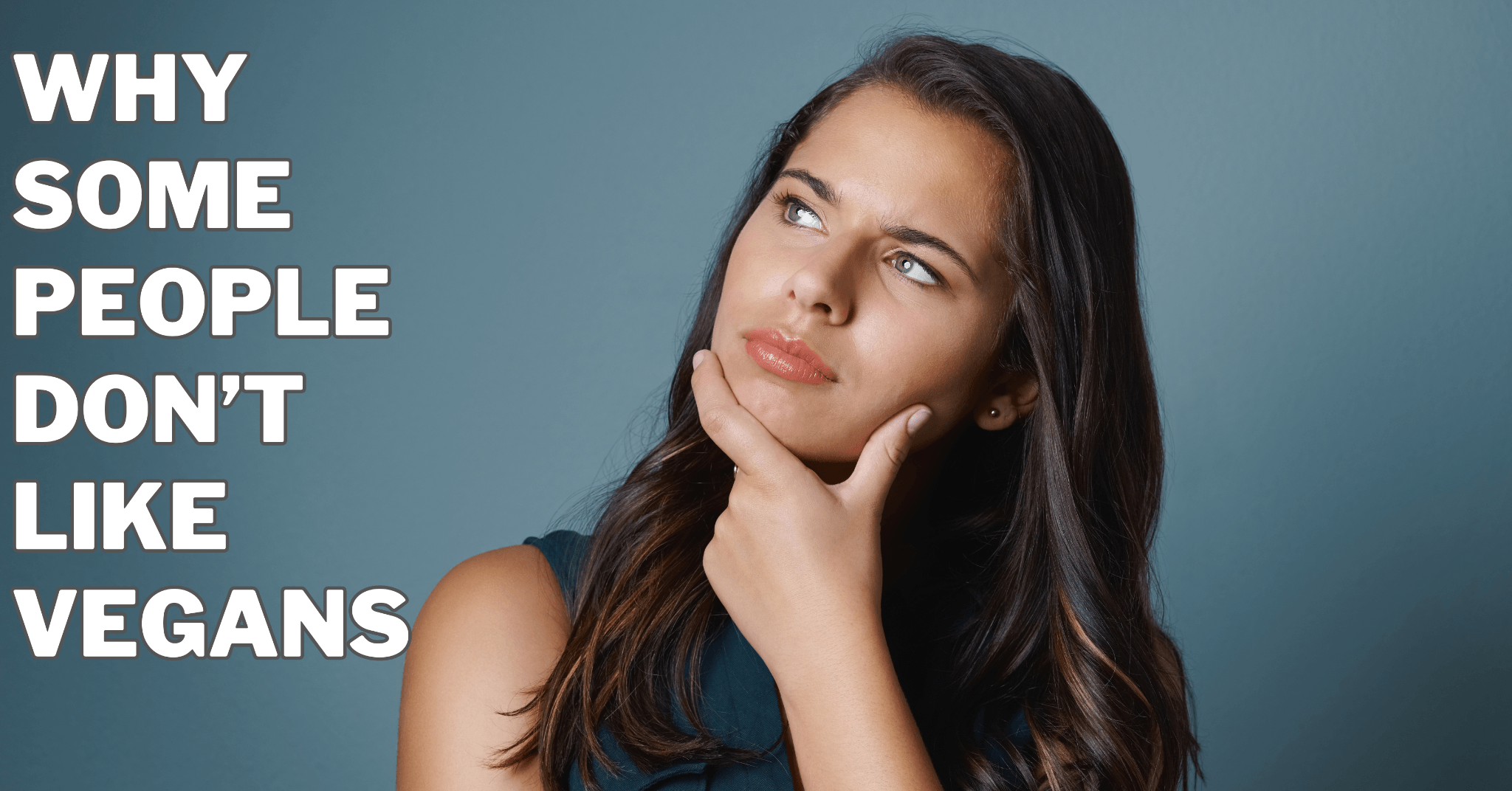
What Is Vegaphobia And Does It Exist?
Vegaphobia, sometimes known as “veganphobia,” is the term used to characterize prejudice, discrimination, or unfavourable attitudes and behaviours toward people who practice veganism.
While not officially recognized as a psychological condition, the term encapsulates the challenges and hostility faced by vegans in various social contexts.
Vegaphobia manifests in different forms, ranging from mockery and ridicule to more serious instances of exclusion or discrimination.
Individuals adhering to a vegan lifestyle may encounter vegaphobia in social settings, workplaces, or even within families.
This bias can stem from various sources, including misconceptions about veganism, cultural and societal norms, or discomfort with the perceived moral stance of vegans.
The existence of vegaphobia underscores the challenges faced by those who choose a plant-based lifestyle. It raises crucial questions about tolerance, understanding, and the need for open conversations to bridge the gap between different dietary choices.
While the term is not universally accepted, the experiences of many vegans point to the presence of negative attitudes and behaviours directed at them, highlighting the importance of promoting respect and acceptance of diverse dietary choices.
Exploring The Reasons Why Some People Don’t Like Vegans
People's attitudes toward vegans can vary for various reasons, and it's important to note that these reasons are diverse and not universally applicable.
Here are some points and topics that may contribute to why some individuals don't like vegans:
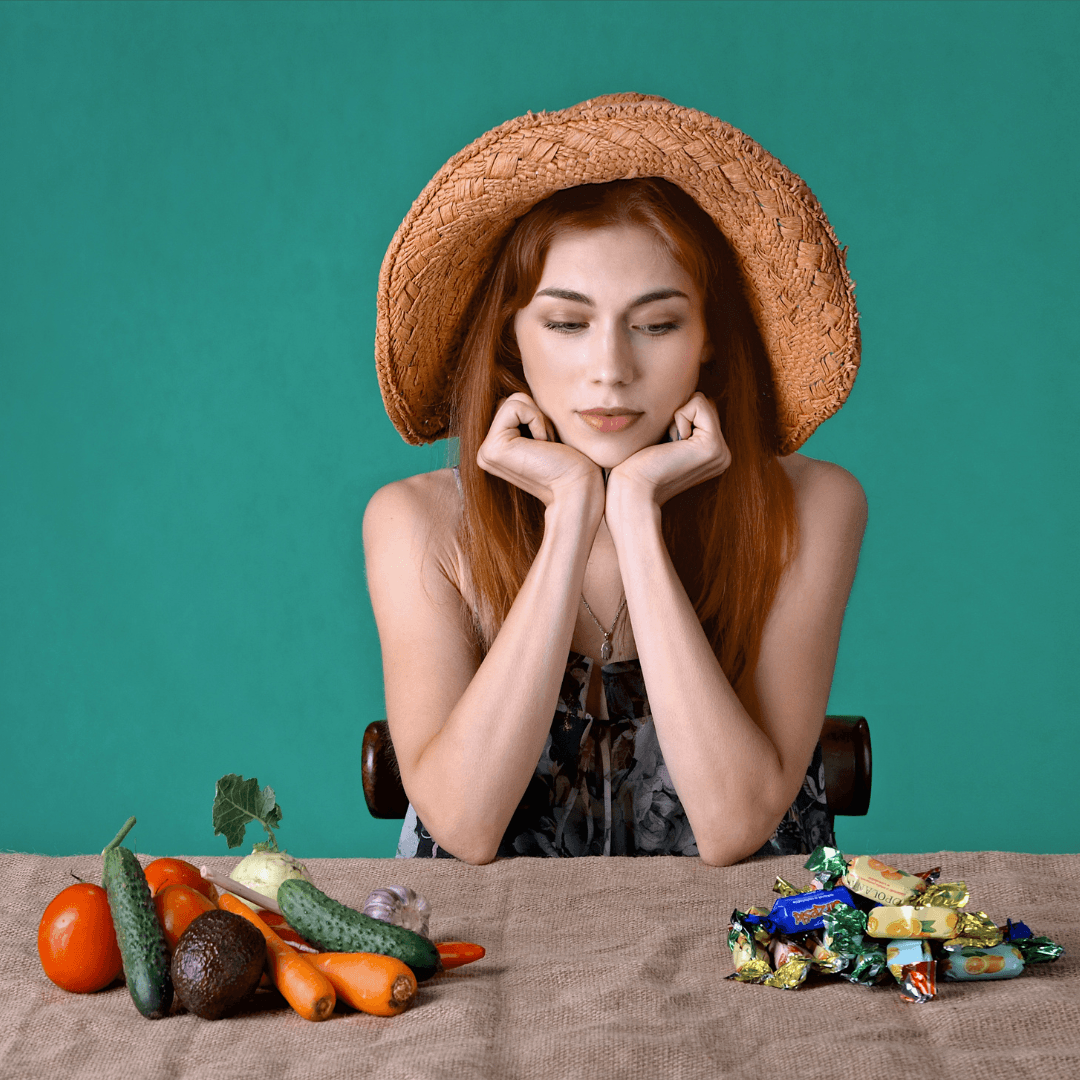
1. Dietary Differences
Imagine a big dinner where everyone is happily eating their favourite foods. Now, think about someone who only eats plant-based things, like fruits, veggies, and grains. This person is a vegan.
Sometimes, the people enjoying their burgers and chicken might feel uneasy seeing the vegans choosing different foods. It's about more than what's on the plate; it's like a puzzle piece that doesn't quite fit.
This uneasiness is because the vegan's choices make them think about their food choices. It's not that veggies are bad or meats are good; it's more about everyone having their own way of eating.
The discomfort some feel isn't really about the taste of the food; it's more like a feeling that someone else's choices are challenging their own.
So, in a way, being defensive about what's on your plate is like protecting your food identity, saying, “This is my way, and it's okay.” It's like wanting to keep things familiar in a world of different food adventures.

2. Cultural And Social Norms
The introduction sets the stage for understanding the dynamics of dietary choices within various communities, exploring why some people don't like vegans due to the perceived deviation from long-standing traditions.
Imagine different groups of people like big families or communities. Now, think about how they all have special ways of doing things, especially regarding food.
For a long time, many of these groups have loved eating meat, like burgers or chicken, because it's part of their traditions, kind of like their special recipe for happiness.
Now, picture someone eating only plant-based things like fruits and veggies – a vegan. It might seem strange to some people because it's different from what they're used to.
It's not about whether the food tastes good; it's more like changing a piece of a puzzle that's always been the same. Some might not like this change because it feels like it's going against what their group has always done, like shaking up their usual way of doing things.
It's not about saying one way of eating is better than another; it's just that people get used to how things are. So, when someone chooses to eat in a new way, it can feel like a challenge to what everyone is used to.
That's why some people might say, “No, let's stick to what we know,” because it feels like protecting the way things have always been in their group.

3. Perceived Judgment
Think of vegans as friends who care about animals and the environment. They choose not to eat meat because they believe it's better for our furry friends and the planet.
Sometimes, they seem serious or strong in their opinions when they talk about it. It's like they care about what they're saying. But, for some people, this can feel like they're saying, “I'm better than you because I don't eat meat.”
It's not that vegans want to make others feel bad. They just want to share why they make the choices they do. Imagine if someone loves playing a certain sport and talks about it a lot.
They might sound really into it, but it doesn't mean they think they're better than someone who likes a different sport. It's just that they're passionate about what they believe is right.
So, when vegans express strong opinions about not eating meat, it's not about saying they're better than others. It's more about caring a lot and wanting to share why they think it's important. But, just like with sports, everyone has their own choices, and it's cool to respect that.

4. Misconceptions About Nutrition
Imagine food as a team of superheroes, each bringing something important. Some folks think you might miss out on these superhero nutrients if you don't eat meat.
This is what some people worry about when it comes to vegans. They believe that if you don't eat animal stuff, you won't get all the good stuff your body needs to be super strong and healthy.
But here's the thing: vegans have their team of superheroes! They get all the good stuff from plant-based foods like fruits, veggies, and grains.
It's like having a team of mighty veggies and fruits working together to keep you healthy. Sometimes, though, people don't know this and might think vegans are missing out on the superhero nutrients.
It's essential to understand that both teams – the meaty heroes and the plant-powered heroes – can make your body strong and healthy.
So, when people worry about vegans missing out, it's like not knowing about the fantastic things plant foods can do. Once they learn about the plant-powered superheroes, their worries might turn into cheers for the diverse ways we can stay healthy.

5. Media Representations
The media's tendency to portray vegans as intense or superhero-like characters contributes to the formation of negative stereotypes, influencing why some people don't like vegans due to these exaggerated and potentially misleading representations.
Now, imagine if every time they told the story, they made it sound like vegans were superheroes on a mission, being very serious and intense about their choices.
It's like giving them a significant, bold character in the story. But, like in real life, not every vegan is like a superhero. Some are quiet, some are loud, just like everyone else.
The media sometimes makes it seem like all vegans are super intense, and that can create a picture in people's minds. Now, imagine meeting someone who says they're vegan, and they talk a lot about it, maybe even in a way that feels a bit too strong.
It's like meeting a character from that story. If someone's only experience with vegans is from these bold stories or strong-talking individuals, they might think all vegans are like that.
So, the media's stories and meeting outspoken vegans can shape how some people see them. It's like thinking all dogs are loud because you met one loud dog. But like dogs, people are different, and not every vegan fits the bold character in the media stories.

6. Inconvenience
Consider the food as part of your day's great adventure. Let's now consider the case of a friend who follows a vegan diet. It is similar to an adventure with a friend with different food tastes.
However, certain individuals may experience some confusion or discomfort as they are accustomed to carrying out specific tasks, such as selecting dining establishments or organizing meals in a particular way.
Having a vegan friend might feel like having to change the adventure plans. They worry that finding the right places to eat or picking snacks everyone can enjoy is tricky.
It's not that they don't want to share the adventure; it's just that it feels like changing the route. The frustration with perceived inconvenience arises when people feel pressured to make changes in their routines or plans, contributing to why some people don't like vegans, who they believe make social or dining adventures more complicated.
This might frustrate some people because the adventure is getting complicated. So, when people say accommodating a vegan lifestyle is inconvenient, it's like saying they need help to adjust their adventure plans.
But, with some creativity and understanding, everyone can still enjoy the adventure together, even with different snack preferences.

7. Lack Of Understanding
Let's say you have a friend who is vegan and only consumes fruits and vegetables. Now, consider an individual who needs to be better informed about the reasons behind your friend's dietary choices.
It's similar to needing to understand your friend's motivation for enjoying a particular game or genre of music. Sometimes, if people need to learn more about veganism, they might guess or make up their ideas about why someone would choose this way of eating.
These guesses may need to be corrected, and it's like having a puzzle piece that doesn't fit. They might think, “Why would someone skip the usual burgers and cheese?
It must be for a strange reason.” But here's the thing: if they knew more about veganism, it would be like having the full story.
They might learn that some people choose this way of eating because they care a lot about animals or the environment. It's not a strange reason; it's a different way of caring.
So, a lack of understanding is like not having the full story, and that can lead to people having the wrong ideas or thinking vegan choices are strange when they're just a different way of showing care.

8. Lack Of Culinary Knowledge
Say your buddy introduces a new version of a game that you both enjoy playing, but it has different rules. It may seem complicated or less enjoyable if you are unfamiliar with the rules.
Vegans cook with fruits and vegetables, which some people may need to become more familiar with. People unfamiliar with these plant-based cooking techniques may wonder, “oh no, how do I make something tasty without the usual meat and cheese?”
It is comparable to getting a little lost in the kitchen game. Ignorance of cool recipes may lead them to believe that vegan food is uninteresting. The tasty reality is that there are a ton of mouthwatering plant-based recipes!
It resembles unlocking new stages in your preferred video game. It's similar to not having a secret recipe book regarding culinary knowledge.
People may realize that cooking vegan food is not only delicious but also an entirely new culinary experience once they hear about all the delicious plant-powered meals.
The initial perception that vegan food is unappealing often stems from a need for more understanding, akin to not knowing the rules of an entertaining game.
Still, those who explore the realm of plant-based cooking may discover its revolutionary and delectable nature, challenging why some people don't like vegans.
It's like needing to understand the entertaining rules of a game. However, they may discover that plant-based cooking is revolutionary once they delve into its delectable realm!

9. Reaction To Dietary Trends
Say there's a new game or dance move that's all the rage, and everyone wants to try it. Consider veganism for a moment. It's a trendy diet that everyone is talking about.
However, some people may ask themselves, “Is this just a trend, like a new game that everyone will forget about?” when they see it.
Occasionally, people may mistake something for a fad rather than a well-considered decision when it gains popularity. For example, when a brand-new song appears on everyone's playlist, some wonder if it will stick around or get forgotten.
It's like saying, “I'm not sure if everyone will keep eating this way or if it's just for now,” when someone rejects veganism because they think it's a fad.
The critical thing to remember is that going vegan isn't always a fad; for many people, it's more like discovering a game or dance they genuinely enjoy. It's a method of eating that considers the environment and animals.
Therefore, while some may view it as a fad, it's a significant and enduring decision for many others, similar to a beloved song that never goes off the playlist.

10. Economic Accessibility
Consider visiting a supermarket that carries a wide variety of foods. Think of a vegan as someone who only desires to consume fruits, vegetables, and other plant-based foods.
However, finding these plant-based options may be more difficult in some areas or for some less well-off individuals. It would be similar to wanting to play a great video game, but not everyone can afford the required special console.
Likewise, only some have easy access to the plant-based foods they desire to eat. This may make it difficult for some people to adopt a vegan lifestyle.
For this reason, it's equivalent to saying, “I want to play that game, but it's too expensive for me,” when someone refuses to adopt a vegan diet.
It's not that eating a plant-based diet bothers them; it's just more difficult for some people. This matters because everyone, regardless of wealth, should be able to choose what they eat.
It can be easier for more people to enjoy these foods and make healthy decisions for themselves and the environment if plant-based options are more widely available and affordable.

11. Fear Of Social Isolation
Think of your friends and family coming together for fun, like barbecues or holiday meals. Imagine someone wanting to eat only plant-based foods, like fruits and veggies – that's a vegan.
They might worry that choosing this way of eating could make them feel left out or alone during these special times. It's like when everyone is playing a game, and one person is afraid that choosing a vegan lifestyle is like being left out of the game.
They might think, “If I don't eat the same foods as everyone else, will I still be part of the fun?” This fear is understandable because sharing meals is a big part of being together.
If someone believes that choosing a vegan lifestyle means missing out on these shared moments, they might feel scared to make that choice.
So, when people are hesitant to go vegan because of this fear, it's like saying, “I want to be part of the fun with my friends and family, and I'm worried that choosing vegan might make me feel left out.”
It's not that they don't like eating plant-based; it's more about wanting to stay connected and included in the shared joy of meals with loved ones.
Conclusion
In conclusion, the reasons why some people may harbour negative feelings towards vegans are complex and multifaceted.
Recognizing that these sentiments emerge from various influences is crucial for fostering open conversations. Encouraging understanding, dispelling myths, and showcasing plant-based diets' diverse and delicious aspects can help bridge the gap.
Understanding the complex reasons behind negative feelings towards vegans is essential for fostering open conversations and promoting a more inclusive perspective on veganism, bridging the gap created by why some people don't like vegans.
Fostering empathy and acknowledging the various factors at play is key to breaking down barriers and promoting a more inclusive and informed perspective on veganism.
I trust you enjoyed reading the article Why Some People Don't Like Vegans? Please stay tuned. There are more blog posts to come very shortly.
Take care
JeannetteZ
>>> Please click here to read my Vegan Travel Guides To World Destinations <<<
>>> Want To Learn How To Create Delicious, Cruelty-Free, Healthy AND 100% Vegan Meals? Try These Awesome Vegan Cooking Courses With A Free 7-DAY MEMBERSHIP<<<
Your Opinion Is Important To Me
Do you have thoughts, ideas, or questions? I would love to hear from you. Please leave me your questions, experiences, and remarks about Why Some People Don't Like Vegans in the comments section below. You can also email me at Jeannette@LivingTheVeganLifestyle.org.
Disclosure
This post may contain affiliate links. I earn from qualifying purchases as an Amazon Associate and other affiliate programs. Please read my full disclosure.
Here are some links to some of my favourite articles:
Top Reasons People Avoid A Vegan Diet


